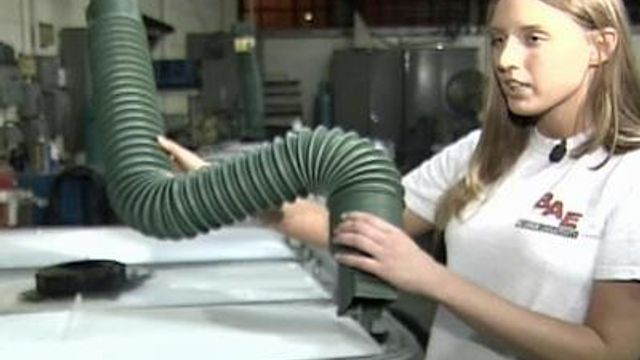Yard Parched? N.C. State Students Offer Solution
As water conservation becomes increasing important across the Triangle, the stormwater engineering students are doing their part by educating - about rain barrels.
Posted — UpdatedN.C. State's American Society of Agricultural and Biological Engineers (ASABE) students converted 10 250-gallon containers into rain barrels Tuesday night. The idea was to show others how to make their own rain collection device.
"Rain barrels," said Nicole Hill, ASABE president, "are a cost-effective alternative to tap water for watering yards and gardens. They're important during droughts, especially by helping reduce peak water demand during the summer, and they reduce peak volume and velocity of stormwater runoff to streams and storm sewer systems."
"Every time it rains, it's good for business,” said Dr. Bill Hunt, assistant professor and extension specialist at N.C. State University's Department of Biological and Agricultural Engineering and head of the department's stormwater engineering team.
Hunt and his students study stormwater runoff and how it can be used during the drought for irrigation or toilet-flushing.
They gave a step-by-step demonstration on assembling a rain barrel Tuesday at Weaver Labs on the university's campus.
"This is actually going to connect to your gutter, and this is actually going to connect to the top of the rain barrel,” Hill explained while demonstrating how the system works. “This (netting) is going to keep that (pine straw) out of your water, so it doesn't clog the spout down at the bottom. Also, it's going to keep the mosquitoes out."
In 2005, N.C. State student Matthew Jones developed software to let homeowners and businesses compute what size rain barrel they would need to collect stormwater runoff.
At first, the software didn’t get much attention, but as the drought lingers – interest is growing.
"It has been amazing," he said.
The rain barrels made Tuesday will be sold for $150 each.
• Credits
Copyright 2024 by Capitol Broadcasting Company. All rights reserved. This material may not be published, broadcast, rewritten or redistributed.





